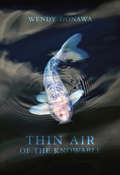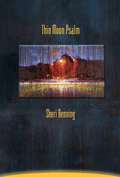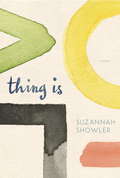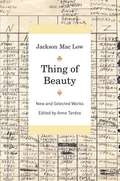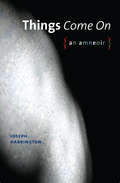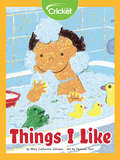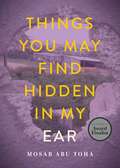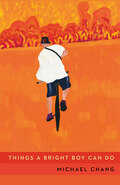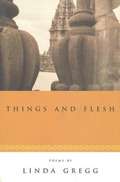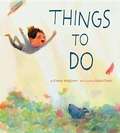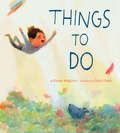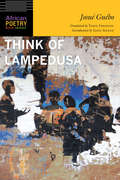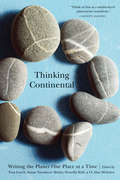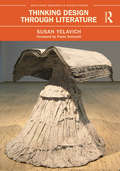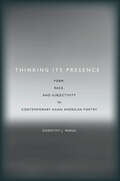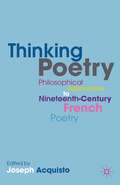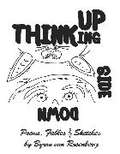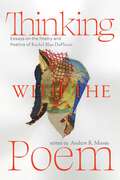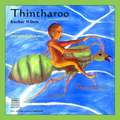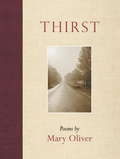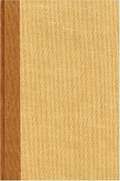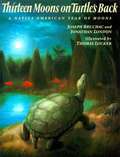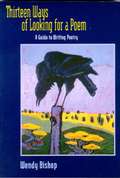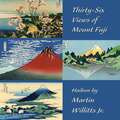- Table View
- List View
Thin Air of the Knowable
by Wendy DonawaAn elegiac and incisive debut that blends poems of social justice with poems of ordinary life. In her first collection, Thin Air of the Knowable, the physical landscapes of Wendy Donawa’s life—West Coast, Caribbean, prairies—ground many of her poems and often reflect the inner geography of her preoccupations. A road-trip poem moves from prairie winter, “an icy scatter of gravel / the moving centre of this unpeopled world,” past a cattle liner on its way to the slaughter house, but it also passes beneath the sky’s “blazing scroll of light,” and magpies “flashing black and teal in the sun.” Landscape also functions metaphorically to suggest how historical settings play out in the exigencies of individual lives. Other preoccupations include poems that reflect on poesis itself—the strange poem-making compulsion to capture that which is largely inexpressible (hence “the thin air of the knowable”), and the role of dreams, memory, and intuition in shaping a poem’s knowledge. Donawa is, in many ways, a political poet, yet manages to put flesh and blood into everything she writes. In the end, Perhaps there is only the demonic journey.Small beauties by the roadside, andsuch love as we can muster. (from “Pu Ru Paints Zhong Kui the Demon Queller on a Mule”) Praise for Thin Air of the Knowable: “Wendy Donawa’s poetry rests at the very edge of beauty where a wild delicacy resides.” —Patrick Lane “Like the watchmakers of old, Wendy Donawa puts a spyglass to her eye and fixes her vision to the minute, to all that carries on beneath our imperfect sight—worlds upon worlds brought into the sharpest focus.” —Pamela Porter
Thin Moon Psalm
by Sheri BenningWinner of the 2007 Anne Szumigalski Award for Poetry and the 2007 City of Saskatoon Prize and nominated for Book of the Year (Saskatchewan Book Awards) and longlisted for the 2008 ReLit Awards Fierce and delicate poems from a young poet reminiscent of Jane Hirshfield and Jan Zwicky Rapt, musical, passionately engaged, the poems in Thin Moon Psalm move towards their own inner stillness, while also bearing witness to the power of relatedness -- to family, lovers, and the prairie landscape itself. Many of them are poems of remembrance and deep grieving, recalling in etched details the rigours and joys of life on a prairie farm, and those iconic moments which are alive with the unspoken -- moments between father and daughter, mother and child, sister and sister, lover and lover, poet and friend. Especially they take on the burden of what is lost, knowing "There is always a room we will never return to" and "we return only through loss: the place where we began."
Thing Is
by Suzannah ShowlerA startling and hip new collection of poetry from a dual American/Canadian citizen who's already making waves on the literary scene.Suzannah Showler's bracing, intense second collection is equal parts cultural critique and phenomenological investigation. Building on the enlightened skepticism of her much-praised debut, Thing Is puts the hashtag age through some much-needed paces. Witty, cutting, heartbroken and cautiously hopeful, these poems are really about "aboutness," about what it means to be alive right now. They also nimbly advance the longstanding poetic argument for the value of considered attention: "What follows from / what you know is / not the same thing / as knowledge. Even / when you get it right."
Thing of Beauty: New and Selected Works
by Jackson Mac Low Anne TardosThis landmark collection brings together poetry, performance pieces, "traditional" verse, prose poems, and other poetical texts from Jackson Mac Low's lifetime in art. The works span the years from 1937, beginning with "Thing of Beauty," his first poem, until his death in 2004 and demonstrate his extraordinary range as well as his unquenchable enthusiasm. Mac Low is widely acknowledged as one of the major figures in twentieth-century American poetry, with much of his work ranging into the spheres of music, dance, theater, performance, and the visual arts. Comparable in stature to such giants as Robert Creeley, John Ashbery, and Allen Ginsberg, Mac Low is often associated with composer John Cage, with whom he shared a delight in work derived from "chance operations. " This volume, edited by Anne Tardos, his wife and frequent collaborator, offers a balanced arrangement of early, middle, and late work, designed to convey not just the range but also the progressions and continuities of his writings and "writingways."
Things Come On: An amneoir (Wesleyan Poetry Series)
by Joseph HarringtonThings Come On is a broken and sutured hybrid of forms, combining poetry, prose narration, primary documents, dramatic dialogue, and pictures. The narrative is woven around the almost exact concurrence of the Watergate scandal and the dates of the poet's mother's illness and death from breast cancer, and weaves together private and public tragedies--showing how the language of illness and of political cover-up powerfully resonate with one another. The resulting "amneoir" (a blend of "memoir" and "amnesia") explores a time for which the author must rely largely on testimony and documentary evidence--not unlike the Congress and the nation did during the same period. Absences, amnesia, and silences count for at least as much as words. As the double tragedy unfolds, it refuses to become part of an overarching system, metaphor, or metanarrative, but rather raises questions of memory and evidence, gender and genre, personal and political, and expert vs. lay language. This haunting experimental biography challenges our assumptions about the distance between individual experience and history.
Things I Like
by Mary Catherine JohnsonFrom bubbles in the bath, to teddy bears in bed—it's all the things I like!
Things You May Find Hidden in My Ear
by Mosab Abu TohaIn this poetry debut Mosab Abu Toha writes about his life under siege in Gaza, first as a child, and then as a young father. A survivor of four brutal military attacks, he bears witness to a grinding cycle of destruction and assault, and yet, his poetry is inspired by a profound humanity. These poems emerge directly from the experience of growing up and living in constant lockdown, and often under direct attack. Like Gaza itself, they are filled with rubble and the ever-present menace of surveillance drones policing a people unwelcome in their own land, and they are also suffused with the smell of tea, roses in bloom, and the view of the sea at sunset. Children are born, families continue traditions, students attend university, and libraries rise from the ruins as Palestinians go on about their lives, creating beauty and finding new ways to survive. Accompanied by an in-depth interview (conducted by Ammiel Alcalay) in which Abu Toha discusses life in Gaza, his family origins, and how he came to poetry.
Things a Bright Boy Can Do
by Michael ChangIn Michael Chang's latest, all the world's a vaudeville stage, and this poet is its jester with a knife.Like an elongated diss track, Chang's poems go from flirty to righteous, wrathful to lackadaisical, all in the span of one page. The titans of pop culture and poetry wrestle at Chang’s whimsy, their poems a series of flings and retorts at the end of a late-night spree. Like a compendium of American poetics, this collection breezily changes style and mood as easily as a prom queen smiles beneath the crown. With nods to O’Hara and Ashbery, the poems in Things a Bright Boy Can Do flit from the sewage of Americana to the heights of ecstatic experience. Each poem is a playground meant to delight readers before they skip along. With each successive book, Michael Chang showcases a poet at home in the twenty-first century; nothing is too silly or too morbid for the page. When reading Chang’s poetry, the madness of interpreting the social media age suddenly makes sense. You can’t help but join in on the heckling, sticking your tongue out in the face of our strange world.“Michael Chang is back, with their signature irrepressibility: the voice that bubbles with endlessly exuberant wit, encyclopedic pop culture references, playful orthography, and intense emotion. Oh, yes – these poems are in their feelings! Are you here for poetry that can lure Superman, Dolly Parton, and Prince allusions together? Are you up for parataxis with a vengeance? If wordplay and irreverence are music to your ears, tune into Things a Bright Boy Can Do.” – Evie Shockley, author of Suddenly We“Michael Chang’s Things a Bright Boy Can Do pushes and pushes, and then pushes some more. It’s provocative, fearless, and relentless, unafraid to reinvent tone, grammar, and just about everything else that dares to enter the path of Chang’s perception. Things a Bright Boy Can Do is a ride on the back of a new modern language.” – Victoria Chang, author of The Trees Witness Everything
Things and Flesh: Poems
by Linda GreggThroughout Things and Flesh, there is a wonderful sense of song, a kind of ringing up and down the scales of being. Here, Linda Gregg engages with the searches and findings of both the intellect and the body. This is poetry beautiful in its attention to the things and flesh of this world, to a life of passionate maturity and substance and the mysteries found within. Loss is a constant companion in Things and Flesh as the poet explores what lesson can be found in "the way this new silence lasts." What all the poems accomplish is to carry the grief we must all by nature endure. They carry our grief across boundaries, over time, and perhaps even beyond, into what used to be called "salvation"--but which Gregg now indicates is instead the place where poetry is made. The consolations are hard won, but no less triumphant. Things and Flesh is a collection that again demonstrates how, as Joseph Brodsky said of her earlier work, "The blinding intensity of Ms. Gregg's lines stain the reader's psyche the way lightning or heartbreak do."
Things to Do
by Catia Chien Elaine MagliaroWith playful prose and vivid art, Things to Do brings to life the small moments and secret joys of a child's day. There are wonders everywhere. In the sky and on the ground--blooming in a flower bed, dangling from a silken thread, buzzing through the summer air--waiting ...waiting to be found. In this thoughtful and ingenious collection of poems, Elaine Magliaro, an elementary school teacher for more than three decades and a school librarian for three years, and illustrator Catia Chien provide a luminous glimpse of the ordinary wonders all around us.
Things to Do
by Elaine MagliaroWith playful prose and vivid art, Things to Do brings to life the small moments and secret joys of a child's day. There are wonders everywhere. In the sky and on the ground—blooming in a flower bed, dangling from a silken thread, buzzing through the summer air—waiting ...waiting to be found. In this thoughtful and ingenious collection of poems, Elaine Magliaro, an elementary school teacher for more than three decades and a school librarian for three years, and illustrator Catia Chien provide a luminous glimpse of the ordinary wonders all around us. Plus, this is the fixed format version, which looks almost identical to the print edition.
Think of Lampedusa (African Poetry Book)
by John Keene Josué Guébo Todd FredsonA collection of serial poems, Think of Lampedusa addresses the 2013 shipwreck that killed 366 Africans attempting to migrate secretly to Lampedusa, an Italian island in the Mediterranean Sea. The crossing from North Africa to this island and other Mediterranean way stations has become the most dangerous migrant route in the world. Interested in what is producing such epic displacement, Josué Guébo’s poems combine elements of history and mythology. Guébo considers the Mediterranean not only as a literal space but also as a space of expectation, anxiety, hope, and anguish for migrants. He meditates on the long history of narratives and bodies trafficked across the Mediterranean Sea. What did it—and what does it—connect and separate? Whose sea is it? Ultimately he is searching for what motivates a person to become part of what he calls a “seasonal suicide epidemic.” This translation of Guébo’s Songe à Lampedusa, winner of the Tchicaya U Tam’si Prize for African Poetry, is a searing work from a major African poet.
Thinking Continental: Writing the Planet One Place at a Time
by Tom Lynch Susan Naramore Maher O. Alan Weltzien Drucilla WallIn response to the growing scale and complexity of environmental threats, this volume collects articles, essays, personal narratives, and poems by more than forty authors in conversation about “thinking continental”—connecting local and personal landscapes to universal systems and processes—to articulate the concept of a global or planetary citizenship.Reckoning with the larger matrix of biome, region, continent, hemisphere, ocean, and planet has become necessary as environmental challenges require the insights not only of scientists but also of poets, humanists, and social scientists. Thinking Continental braids together abstract approaches with strands of more-personal narrative and poetry, showing how our imaginations can encompass the planetary while also being true to our own concrete life experiences in the here and now.
Thinking Design Through Literature (Routledge Research in Design Studies)
by Susan YelavichThis book deploys literature to explore the social lives of objects and places. The first book of its kind, it embraces things as diverse as escalators, coins, skyscrapers, pottery, radios, and robots, and encompasses places as various as home, country, cities, streets, and parks. Here, fiction, poetry, and literary non-fiction are mined for stories of design, which are paired with images of contemporary architecture and design. Through the work of authors such as César Aires, Nicholson Baker, Lydia Davis, Orhan Pamuk, and Virginia Woolf, this book shows the enormous influence that places and things exert in the world.
Thinking Its Presence: Form, Race, and Subjectivity in Contemporary Asian American Poetry
by Dorothy J. WangWhen will American poetry and poetics stop viewing poetry by racialized persons as a secondary subject within the field? Dorothy J. Wang makes an impassioned case that now is the time. Thinking Its Presence calls for a radical rethinking of how American poetry is being read today, offering its own reading as a roadmap. While focusing on the work of five contemporary Asian American poets#151;Li-Young Lee, Marilyn Chin, John Yau, Mei-mei Berssenbrugge, and Pamela Lu#151;the book contends that aesthetic forms are inseparable from social, political, and historical contexts in the writing and reception of all poetry. Wang questions the tendency of critics and academics alike to occlude the role of race in their discussions of the American poetic tradition and casts a harsh light on the double standard they apply in reading poems by poets who are racial minorities. This is the first sustained study of the formal properties in Asian American poetry across a range of aesthetic styles, from traditional lyric to avant-garde. Wang argues with conviction that critics should read minority poetry with the same attention to language and form that they bring to their analyses of writing by white poets.
Thinking Poetry: Philosophical Approaches to Nineteenth-Century French Poetry
by Joseph AcquistoThis volume of essays seeks to establish a dialogue between poetry and philosophy where each could be said to read the other and announces important new paths for a reinvigorated study of lyric poetry in the decades to come.
Thinking Upside Down
by Byron Von RosenbergThe poems, fables, and sketches in this book will give you cause to think and a chance to laugh as well. They have been enjoyed by preteens and teenagers (!) and even given adults and retirees a smile or two. Read Thinking Upside Down to turn your heart right side up! Among its 160 pages and about 100 poems you'll find The Otter Oughter, Neanderthal Nell, and Super-Frog. Thinking Upside Down was written for children, but it will also entertain teens and adults
Thinking with the Poem: Essays on the Poetry and Poetics of Rachel Blau DuPlessis (Recencies Series: Research and Recovery in Twentieth-Century American Poetics)
by Andrew R. MossinBroad-ranging and pluralistically investigative, the essays in Thinking with the Poem document Rachel Blau DuPlessis&’s authorial interventions as a poet, scholar, and cultural critic steeped in the linguistic and political frames of her time. The writers included in this volume engage root-level questions at the heart of DuPlessis&’s praxis as posed by her in a recent essay: &“What is a poem, what is a poet, what is an oeuvre, what is the &‘poetic&’?&” Inventive and noncanonical, these essays offer substantive responses to these and other questions, providing new routes of inquiry into the poetry and poetics of this preeminent figure of new writing.
Thintharoo. Colección poética
by Kuzhur Wilson Jaili Ivinai Buelvas DiazUna colección de 50 poemas vibrantes que harán arder tu mente con los incendios del infierno en la tierra y el cielo. Bellamente traducido del Malayalam al inglés y posteriormente traducido al español, contiene imágenes que harán volar al lector. Kuzhur Wilson es un poeta por excelencia que inhala y exhala poesía. Desde el momento en que abrió los ojos, ha visto un mundo diferente de los demás. Y continúa conversando con las plantas, los árboles, las flores, los peces, los animales, las personas, de la misma manera en que los cinco elementos le hablaron en ese momento decisivo. Aquí se muestra una imaginación en su mejor expresión, desde Thintharoo, un nombre que nunca llegó a ser el nombre de nadie, hasta un centenar de nombres extraños de los árboles que nos rodean. Kuzhur Wilson puede llamar a cada árbol por su nombre, como Dios nos llama en el día del Juicio Final. En su poesía, nuestro mundo parece estar al borde del colapso. Pero, Kuzhur Wilson convoca a sus mujeres para salvarnos ... 'Karingali que orina de pie, Kallavi suplicando ser llenada, Karanjili temblando de lujuria, Kaari que tararea mientras folla, Kaavalam que duerme después del trabajo, Thannimaram mostrando sus pétalos, Thambakam besando su vagina, Thellipayar saboreando un pinchazo, Neerkurunda en el languidez después de follar. Somos salvados.
Thirst
by Mary OliverThirst, a collection of forty-three new poems from Pulitzer Prize-winner Mary Oliver, introduces two new directions in the poet's work. Grappling with grief at the death of her beloved partner of over forty years, she strives to experience sorrow as a path to spiritual progress, grief as part of loving and not its end. And within these pages she chronicles for the frst time her discovery of faith, without abandoning the love of the physical world that has been a hallmark of her work for four decades.
Thirsting for Peace in a Raging Century
by Edward SandersA collection of selected poems 1961-1985 that won the America Book Award in 1988.
Thirteen Moons on Turtle's Back: A Native American Year of Moons
by Jonathan London Joseph BruchacCelebrates the seasons of the year through poems from the legends of such Native American tribes as the Cherokee, Cree, and Sioux.
Thirteen Ways of Looking for a Poem: A Guide to Writing Poetry
by Wendy BishopThirteen Ways of Looking for a Poem is grounded in the belief that the best way to learn to write poetry - and improve one's writing in general - is through practice. The book's unique approach - teaching the elements of poetry through various poetic forms - encourages students to learn from existing models and to break free from pre-established constraints. In thirteen chapters centered on the sonnet, the haiku, and other traditional and not-so-traditional forms, the author demonstrates through numerous innovative exercises the many ways in which beginning poets can enrich their writing by studying and practicing poetic form.
Thirty-Six Views of Mount Fuji: Haibun
by Katsushika Hokusai Martin WillittsThe thirty-six woodblock prints that were the inspiration for this collection of writings were made by Katsushika Hokusai (1760-1849). The pieces show different views of Mount Fuji from various waystations where people would go to look at the beautiful mountain. The writings in this book are haibun, a literary form originating in Japan that combines prose-autobiography, diary entries, essay, or short story-and poetry-often haiku. Hokusai was in his seventies when he produced the Mount Fuji series; the author, Martin Willitts Jr., was seventy years old when he began studying the prints, attempting to merge himself with Hokusai.
Thirty-three Billion Songs on the Road of Reincarnations: The Santiniketan Sutra
by Chris MosdellA collection of poems by Chris Mosdell written in homage to Rabindranath Tagore and based on Tagore's Stray Birds collection of verse.
